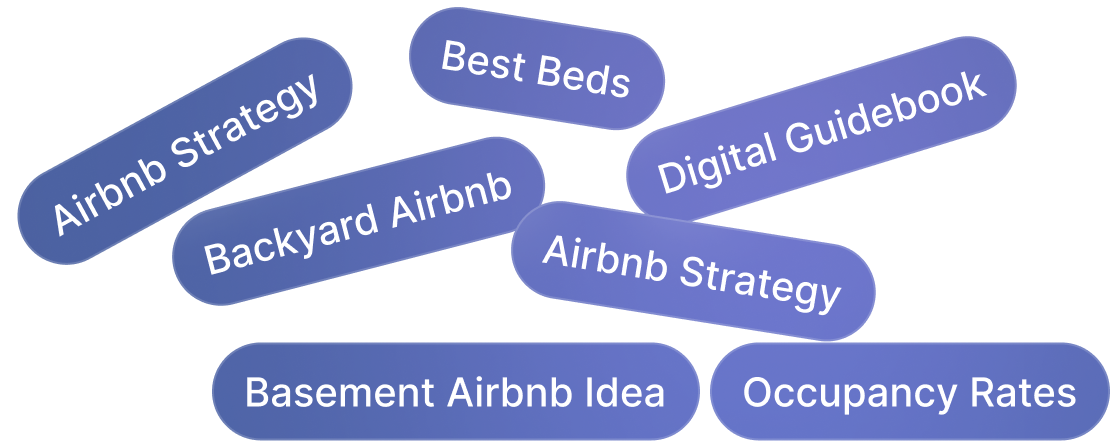As a host, you likely go out of your way to provide an exceptional experience for your guests. But sometimes, issues arise that are beyond your control, and one of the most stressful situations a host can face is a chargeback on Airbnb. Chargebacks occur when a guest disputes a charge with their bank or credit card provider, potentially leading to a reversal of the payment you’ve already received. For vacation rental owners and short-term rental managers, this can feel frustrating and unfair.
The good news? With the right strategies, you can both avoid and effectively manage chargebacks. This guide will walk you through the steps to minimize the risk of chargebacks and how to handle them if they occur.
Host Tools provides an automated, unified calendar for short-term rental hosts, allowing you to seamlessly list on all major channels. Start your free trial today!
What Is a Chargeback on Airbnb?

A chargeback on Airbnb is when a cardholder disputes a charge with their credit card company, asking to reverse the transaction. For hosts, this might happen if a guest claims they didn’t receive the service they expected, experienced property issues, or even if they incorrectly classify the transaction as fraudulent. Once a chargeback is initiated, the disputed amount is deducted from your payout while the case is being reviewed.
Why Do Chargebacks on Airbnb Happen?
The reasons for a chargeback can vary, but there are some common scenarios hosts encounter:
- Dissatisfied Guests: A guest may dispute a charge if they’re unhappy with the cleanliness of the property, missing amenities, or unfulfilled promises from the listing.
- Misunderstanding of Policies: Guests might dispute charges related to cancellations if they don’t fully understand the cancellation policy at the time of booking.
- Fraudulent Claims: Some guests take advantage of the chargeback process to unfairly claim financial reimbursement.
- Legitimate Fraud: If a cardholder’s details are stolen and used for an Airbnb booking without their knowledge, they may issue a chargeback.
Understanding these triggers is critical to developing proactive measures that help reduce the risk of disputes.
Tips to Prevent Chargebacks on Airbnb

Taking preventive steps can dramatically lower your chances of facing a chargeback. Here’s how to protect your hosting business:
1. Be transparent in your listing
Ensure your listing is a true representation of the property. Use accurate descriptions and high-quality photos to set the right expectations for guests. Highlight unique features while also being upfront about quirks (such as a small bathroom or ongoing neighborhood construction). Guests are more likely to be satisfied if their expectations align with what you deliver.
2. Document everything
Keeping detailed records can protect you in the event of a dispute. Include:
- Date-stamped photos or videos of your property before check-in and after check-out.
- Screenshots of all communications with the guest.
- Receipts for professional cleaning services or repairs as proof of property maintenance.
Platforms like Host Tools can help you automate communications and centralize conversations for easy record-keeping.
3. Set clear house rules
House rules protect both hosts and guests by establishing expectations upfront. Highlight these rules in your listing and include them in booking confirmations. Examples could include quiet hours, no smoking policies, or specific guidelines for using amenities. This reduces the likelihood of conflict during the guest’s stay.
4. Use Airbnb’s built-in features
Airbnb has safeguards to help you handle the dispute process:
- Security Deposits: Set a reasonable security deposit for your listing to cover damages.
- Resolution Center: If issues arise, use Airbnb’s Resolution Center to manage complaints and work toward a fair settlement.
- Strict Cancellation Policies: Choose a cancellation policy that supports your business goals while protecting you from last-minute cancellations.
5. Provide excellent guest service
Respond promptly to inquiries and address guest concerns swiftly during their stay. A quick resolution to any complaints can prevent issues from escalating into formal disputes.
6. Automate your operations with Host Tools
Managing your property efficiently with tools like Host Tools can lower the chance of guest dissatisfaction. Host Tools allows you to automate messaging, update calendars in real-time, and provide personalized communications for smoother operations.
How to Handle a Chargeback on Airbnb as a Host
Even with all the right precautions, chargebacks can still happen. When they do, here are the steps to follow:
1. Stay calm and gather evidence
The first step is to avoid panicking. Begin collecting all relevant evidence that demonstrates the legitimacy of the charge, such as:
- The guest’s confirmed booking and payment method details.
- Screenshots of messages exchanged with the guest.
- Check-in/check-out records, including time-stamped security footage or smart lock logs.
- High-resolution photos showing the state of your property before and after their stay.
2. Respond through Airbnb
Airbnb will notify you if a chargeback has been initiated and ask you to provide supporting evidence. Always respond promptly and within the requested timeframe.
3. Write a clear explanation
When submitting documentation, include a concise statement summarizing the facts. Explain how the guest’s claims are inaccurate or unjustified, supported by the evidence you’ve gathered.
4. Cooperate with Airbnb and the bank
While Airbnb will take the lead in communicating with the payment processor or bank, they rely on your input to build a strong case. Provide any information as requested, and ensure that all submissions are complete and clear.
5. Learn from the experience
If the chargeback isn’t overturned, take it as a learning opportunity. Reflect on what adjustments you can make to avoid similar incidents in the future. For example, refine your house rules, add extra clarity to your listing details, or update your cancellation policy.
Why Proactive Management is Key
Chargebacks can disrupt your payouts and cause stress, but proactive management can safeguard your hosting business. By setting clear expectations, keeping detailed records, and delivering excellent guest experiences, you can minimize disputes. Should a chargeback occur, having efficient tools like Host Tools can make retrieving evidence and managing operations significantly smoother.
Final Thoughts
Chargebacks are an unfortunate part of being an Airbnb host, but they don’t have to derail your business. With transparency, excellent communication, and automation, you’ll create a positive guest experience and protect your property from disruption.
Host Tools provides an automated, unified calendar for short-term rental hosts, allowing you to seamlessly list on all major channels. Start your free trial today!



